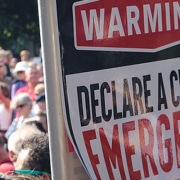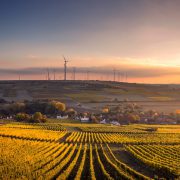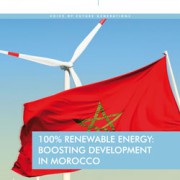Students meet Prime Minister to demand climate action as KidsCall Campaign culminates in New Delhi
Press release
Delhi/Hamburg, August 16, 2008: Three representatives of the international youth campaign KidsCall along with the World Future Council’s Climate and Energy Director Mr. Stefan Schurig and Policy Officer Mr. Manu Sankar from the Delhi office today met the Honorable Prime Minister of India Dr Manmohan Singh to tie a rhaki according to an Indian tradition.
A rakhi is a bracelet that symbolizes protection from the recipient to those who give it. The
bracelet was given on behalf of thousands of kids who participated in the KidsCall campaign,
requesting protection from climate change.
The children also handed over a list of six key concerns to the Prime Minister which they felt
need the immediate attention of the Indian Government:
- Climate change already impacts thousands of people in India. Methods that the government employs to tackle climate change must ensure that people are able to remain in the region of their residence rather than relocating to big cities.
- The promotion of organic farming both in terms of mitigation and adaptation to climate change is vital. We are disappointed that the Government’s National Action Plan on Climate change focuses instead on Biotechnology and Genetic Engineering even though thousands of farmers who grow genetically modified cotton have committed suicide because the seeds are costly, non-renewable and unreliable.
- A massive increase of renewable energy in India, combined with regular and transparent monitoring about its implementation.
- The government needs to increase its efforts in raising public awareness about the threats but also the solutions to climate change.
- We call on the government to recognise the water crisis being caused by climate change in India. If the glaciers of the Himalayas continue to melt how will the rivers flow? People and animals are already dying in India because of droughts.. We urge the Government to increase the implementation of holistic policies of natural resource management such as rain water harvesting in order to combat this problem.
- India cannot afford to be left behind in addressing climate change both in reducing emissions and in evolving resilience. We, as the future generations of India want to see India as an environmental leader and not a laggard. The role that India plays globally should be led by its best thinking, that India should proceed with its economic development but understand that growth need not mean huge CO2 emissions.
The KidsCall campaign in India is the combined initiative of Delhi based Navdanya and the Hamburg based World Future Council that aims to provide a platform for young people to express their concerns about climate change. Through this campaign over 10,000 messages from more than 30 countries have been collected in mixed media form from audio recordings to videos, letters and posters. The appeals were made from children and young people ranging in age from 7 to 21. These messages were then presented to state representatives of G-8 +5 countries to influence policy makers towards making wise decisions in the interests of the planet and future generations.
In India the campaign was launched on the 2nd February 2008 by students at the Gandhi, Globalization and Climate Change conference organized by Navdanya and the World Future Council in New Delhi. In the following five months the campaign travelled to the students and young people of over twenty cities, towns and villages across ten states (New Delhi, Maharashtra, Uttar Pradesh, Madhya Pradesh, Uttaranchal, Haryana, Orissa, Kerala, Karnataka and Gujarat). The response and participation of India’s youth was overwhelming and contributed to the global campaign spanning 20 countries both in quantity and quality.
The World Future Council brings the interests of future generations to the centre of policy making. Its 50 eminent members from around the globe have already successfully promoted change. The Council addresses challenges to our common future and provides decision-makers with effective policy solutions. In-depth research underpins advocacy work for international agreements, regional policy frameworks and national lawmaking and thus produces practical and tangible results.World Future Council








